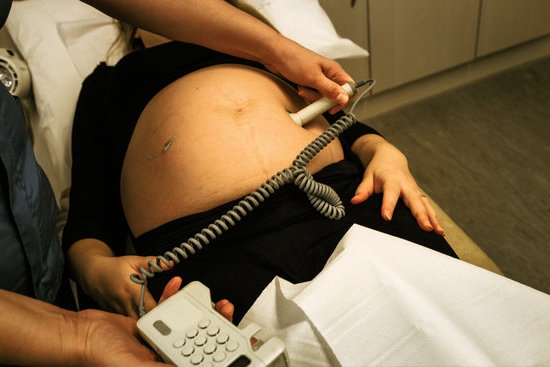Pre-ejaculation, also known as pre-cum or pre-seminal fluid, is a natural fluid that can be released from the male reproductive system during sexual arousal. Many individuals wonder, “can pre ejaculation cause pregnancy?” This article aims to explore the role of pre-ejaculation in sexual intercourse and its potential to lead to pregnancy.
Understanding the likelihood of pregnancy from pre-ejaculation is essential for individuals who are sexually active or planning to engage in sexual activity. Scientific research and statistics will be examined to provide a clearer understanding of the potential for pre-ejaculation to cause pregnancy. Additionally, common myths and misunderstandings about pre-ejaculation and pregnancy will be addressed in order to provide accurate information on this topic.
Factors that may increase the risk of pregnancy from pre-ejaculation, such as timing, fertility, and contraception use, will also be discussed in this article. It is important to consider these factors when assessing the likelihood of pregnancy resulting from pre-ejaculation. In addition, methods of prevention and effective strategies for avoiding pregnancy from pre-ejaculation will be explored in order to provide practical information for individuals seeking to prevent unintended pregnancies.
Understanding the Likelihood of Pregnancy From Pre-Ejaculation
Pre-ejaculation, also known as pre-cum, is a clear, sticky fluid that is released from the male reproductive system during sexual arousal. It serves as a lubricant for the urethra and may contain traces of sperm from a previous ejaculation. Many people wonder whether pre-ejaculation can lead to pregnancy, especially if it contains sperm. The likelihood of pregnancy from pre-ejaculation can vary depending on various factors, including timing, fertility, and contraceptive use.
Research has shown that pre-ejaculate itself may contain sperm in some cases. A study published in the “Journal of Adolescent Health” found that 41% of men produced pre-ejaculate samples that contained sperm.
While the concentration of sperm in pre-ejaculate is generally lower than in a full ejaculation, it still poses a risk of causing pregnancy if it comes into contact with the vagina. This means that even without full ejaculation, there is a possibility of pregnancy occurring from pre-ejaculation.
Furthermore, timing plays a crucial role in the potential for pre-ejaculation to cause pregnancy. If sexual activity occurs during or around the time of ovulation – when an egg is released from the ovary – the risk of pregnancy increases.
Sperm can survive in the female reproductive tract for up to 5 days, so if there is any viable sperm present in the pre-ejaculate when ovulation occurs, fertilization can take place. It’s important to note that while rare, instances of pregnancy resulting from pre-ejaculation have been documented.
| Pre-Ejaculation Statistics | Research Findings |
|---|---|
| Percentage of men producing pre-ejaculate with sperm | 41% |
| Survival time of sperm in female reproductive tract | Up to 5 days |
Debunking Misconceptions
Pre-ejaculation, also known as pre-cum, is the clear fluid that can leak from the penis during sexual arousal. Many people believe that pre-ejaculation does not contain sperm and therefore cannot result in pregnancy. However, this is a common misconception that needs to be debunked.
Myth: Pre-Ejaculation Does Not Contain Sperm
Contrary to popular belief, pre-ejaculate can indeed contain live sperm. While the concentration of sperm in pre-ejaculate may be lower than in a full ejaculation, it is still possible for pregnancy to occur if pre-ejaculate enters the vagina during unprotected intercourse. Research has shown that some men may have a higher concentration of sperm in their pre-ejaculate compared to others, further increasing the risk of pregnancy.
Myth: Withdrawal Method Is an Effective Form of Contraception
Another common misconception is that the withdrawal method, also known as “pulling out,” is an effective means of preventing pregnancy from pre-ejaculation. However, this method relies on the man pulling out before ejaculation occurs, which can be difficult to time accurately. Additionally, pre-ejaculation itself can contain sperm, making it unreliable for preventing pregnancy.
Myth: Pregnancy Cannot Occur if the Woman Does Not Orgasm
Some people believe that if the female partner does not reach orgasm during intercourse, the likelihood of pregnancy decreases. However, this is not true. Pregnancy is determined by the presence of viable sperm reaching and fertilizing an egg within a woman’s reproductive system. Therefore, whether or not the female partner orgasms does not impact the potential for pregnancy from pre-ejaculation.
It is important to address these myths and misunderstandings about pre-ejaculation and its potential to cause pregnancy in order to provide accurate information and promote responsible sexual health practices.
Factors That May Increase the Risk
When it comes to the potential for pregnancy from pre-ejaculation, there are several factors that can impact the likelihood of conception. Understanding these factors is important for individuals who are seeking to prevent an unplanned pregnancy. Below are some key considerations:
- Timing: The timing of sexual intercourse in relation to ovulation can greatly affect the likelihood of pregnancy from pre-ejaculation. When a person with a uterus is most fertile, which typically occurs around ovulation, the chances of conception increase.
- Fertility: The fertility of both partners involved in sexual intercourse plays a significant role in the likelihood of pregnancy from pre-ejaculation. Individuals who have underlying fertility issues may be at higher risk of conceiving, even if pre-ejaculate does not contain sperm.
- Contraception use: The use of contraception during sexual activity can impact the chances of pregnancy from pre-ejaculation. Condoms, for example, are known to be effective in preventing the transmission of sperm through pre-ejaculate. However, it’s important to note that other forms of birth control may be less effective in preventing pregnancy from pre-ejaculation.
Taking these factors into consideration can help individuals make informed decisions about their sexual health and contraceptive choices to reduce the risk of unintended pregnancy resulting from pre-ejaculation. It also highlights the importance of communication between partners and seeking professional advice when necessary.
Methods of Prevention
Preventing pregnancy from pre-ejaculation is an important consideration for individuals engaging in sexual activity. While pre-ejaculate, also known as pre-cum, does not contain sperm, it can pick up sperm leftover in the urethra from a previous ejaculation. Therefore, it is possible for pregnancy to occur if there is genital contact and ejaculation near the vaginal opening. It is essential to understand the methods of prevention to ensure that unwanted pregnancies are avoided.
To prevent pregnancy from pre-ejaculation, individuals can consider the following effective methods:
1. Condom use: Using condoms correctly and consistently can help prevent pregnancy by creating a barrier that prevents sperm from entering the vagina.
2. Withdrawal method: While not as reliable as other forms of contraception, withdrawing the penis before ejaculation can reduce the risk of pregnancy from pre-ejaculation. However, it is important to note that this method requires precision and self-control.
3. Emergency contraception: In the event of unprotected sex or contraceptive failure, emergency contraception pills can be taken within a specific timeframe to reduce the risk of pregnancy.
It is crucial for individuals to be well-informed about these methods and to choose the most suitable option based on their individual needs and circumstances. Consulting with a healthcare professional can provide valuable guidance in selecting appropriate preventive measures.
Understanding effective methods of preventing pregnancy from pre-ejaculation can help individuals make informed decisions about their sexual health and reduce the risk of unintended pregnancies. By utilizing reliable contraception methods and seeking appropriate guidance, individuals can take proactive steps to prevent unwanted outcomes.
Health Implications
Pre-ejaculation, also known as pre-cum, is the release of a small amount of fluid from the penis before ejaculation occurs during sexual activity. While it is often associated with foreplay, it can also contain sperm that can lead to pregnancy if it comes into contact with the vagina. This has raised concerns about the potential physical and emotional implications of an unplanned pregnancy resulting from pre-ejaculation.
Physically, an unplanned pregnancy can have significant implications for both the pregnant individual and their partner. Pregnancies that occur as a result of pre-ejaculation may not be detected until later stages, which can limit options for abortion or increase the risks associated with childbirth. Additionally, it can lead to a range of physical health concerns for the pregnant individual, such as changes in hormone levels, possible complications during pregnancy and childbirth, and increased stress on their body.
Emotionally, an unplanned pregnancy resulting from pre-ejaculation can also have profound effects on individuals and their relationships. It can lead to feelings of anxiety, fear, stress, and uncertainty about the future. For some individuals, it may also impact their mental well-being and overall quality of life. The emotional toll of an unplanned pregnancy resulting from pre-ejaculation should not be underestimated and highlights the importance of taking effective preventive measures.
Statistics show that around 22% of couples who rely solely on withdrawal (which involves pulling out before ejaculation to prevent sperm from entering the vagina) will experience an unintended pregnancy within a year. This underscores the need for individuals to have open discussions with their partners about contraceptive methods and seek reliable birth control options to effectively prevent pregnancy from pre-ejaculation.
| Physical Impacts | Emotional Impacts |
|---|---|
| Possible complications during pregnancy | Feelings of anxiety and fear |
| Increased stress on pregnant individual’s body | Impact on mental well-being |
| Limited options for abortion if not detected early | Uncertainty about the future |
Legal and Ethical Considerations
Consent and Responsibility
When it comes to pregnancy resulting from pre-ejaculation, questions of consent and responsibility often arise. In cases where there was no explicit agreement or intention to engage in unprotected intercourse, the issue of consent becomes a significant legal and ethical concern. Both partners should be aware of the potential risks associated with pre-ejaculation and take mutual responsibility for contraception use or other preventive measures.
Reproductive Rights
In some contexts, the legal and ethical implications of pre-ejaculation causing pregnancy intersect with reproductive rights. The right to make decisions about one’s own body, including contraception use, is an essential component of reproductive autonomy. Issues surrounding access to contraception, education about sexual health, and the right to terminate a pregnancy if desired can all come into play when considering the legal and ethical aspects of pregnancy from pre-ejaculation.
Parental Obligations
If pregnancy occurs as a result of pre-ejaculation, questions about parental obligations may arise. In cases where individuals become parents unexpectedly due to pre-ejaculation, legal and ethical considerations related to child support, custody arrangements, and parental responsibilities may need to be addressed. It is important for individuals in this situation to seek legal guidance and support in navigating these complex issues.
As can be seen, the legal and ethical implications of pregnancy from pre-ejaculation are multifaceted and can vary depending on individual circumstances and cultural contexts. It is crucial for individuals to be informed about their rights and responsibilities regarding sexual health and reproduction. Seeking professional advice and having open communication with partners can help navigate these complex issues effectively.
Conclusion
In conclusion, pre-ejaculation can cause pregnancy, although the likelihood is lower than with full ejaculation. Research and statistics have shown that sperm present in pre-ejaculate can lead to fertilization under certain circumstances. However, it’s important to debunk common misconceptions about pre-ejaculation and pregnancy to understand the actual risks involved. Factors such as timing, fertility, and contraceptive use can all play a role in increasing or decreasing the likelihood of pregnancy from pre-ejaculation.
It is crucial for individuals to be aware of effective methods for preventing pregnancy from pre-ejaculation, including using condoms and other forms of birth control. Additionally, seeking professional medical advice and discussing contraceptive options with a healthcare provider can also help in preventing unplanned pregnancy.
Furthermore, it’s important to consider the potential physical and emotional impacts of an unplanned pregnancy resulting from pre-ejaculation. This can have significant implications on an individual’s health and well-being, as well as legal and ethical considerations in various contexts. Therefore, being well-informed about the risks and taking necessary precautions is essential when it comes to managing the possibility of pregnancy from pre-ejaculation.
Frequently Asked Questions
What Are the Chances of Getting Pregnant From Precum?
The chances of getting pregnant from precum are relatively low but not impossible. Precum may contain sperm, especially if there’s leftover sperm in the urethra from a previous ejaculation.
Can Premature Ejaculation Cause Pregnancy?
Yes, premature ejaculation can cause pregnancy if ejaculation occurs near the vaginal opening. Sperm may still be present in pre-ejaculate fluid, increasing the risk of pregnancy.
Should I Take Plan B for Precum?
It is recommended to consider taking Plan B for precum exposure, especially if unprotected intercourse occurred. Plan B can help prevent pregnancy by delaying or preventing ovulation after unprotected sex.

Welcome to my fertility blog. This is a space where I will be sharing my experiences as I navigate through the world of fertility treatments, as well as provide information and resources about fertility and pregnancy.





